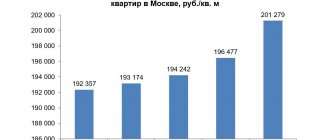The only housing: what the law says
Russian legislation protects citizens who own only one apartment. Art. 40 of the Constitution of the Russian Federation guarantees the right to housing and a special procedure for eviction. Art. 3 of the Housing Code repeats the content of the Basic Law of the country. In Art. 446 of the Civil Procedure Code of the Russian Federation states that a single apartment cannot be the object of recovery under executive documents.
A single apartment means that a citizen is registered in only one residential property, and he has no alternative properties. The law establishes a general rule: if the apartment is the only residential property in the property, then eviction is prohibited. However, there are no rules without exceptions.
What is single housing
The only housing is that which a person uses for living without having an alternative. According to Article 40 of the Constitution, not a single citizen of the Russian Federation can be deprived of housing. An area that meets sanitary, fire and technical requirements is considered suitable for living.
A person can live in an apartment or in a house on the basis of ownership, i.e. he is the owner of the property, either under a social or service tenancy agreement. A person can rent residential premises from its owners, or a company provides a service apartment for its employees for the duration of a contract or for a business trip.
When can they be evicted from their only home?
The legislation does not contain a strict list of grounds on which eviction is possible. In practice, the following situations are common:
- the apartment is recognized as unsafe or dilapidated, for which reason it is subject to demolition;
- the apartment is the subject of a mortgage;
- the apartment has been transferred from residential to non-residential;
- major renovation of the building significantly changed the size of the apartment;
- tenants have not paid utility bills for more than 6 months.
The breakdown of a house or apartment is recognized on the grounds specified in Decree of the Government of the Russian Federation No. 47. The main reasons for demolition are physical wear and tear and changes in the microclimate, which make it impossible to live in the apartment. When transferring an apartment from residential to non-residential, the state undertakes to provide citizens with other premises for living. In this case, living space standards will apply.
The exception for apartments with a mortgage is enshrined in Art. 446 Code of Civil Procedure of the Russian Federation. In accordance with mortgage legislation, such an object may be foreclosed on.
Major renovations can either reduce or increase living space. In both cases, a significant change in area can lead to eviction if the apartment was used under a social rental agreement.
Art. 91 of the Housing Code of the Russian Federation contains the grounds on which they can evict without the provision of other residential real estate:
- use of the apartment for other purposes;
- regular violation of the rights of neighbors;
- negligent attitude towards the condition of the apartment;
- deprivation of parental rights in relation to children who are owners of living space.
Systematic rowdy behavior and destruction of the apartment can lead to eviction. A court decision may also determine that children cannot live together with parents who have been deprived of parental rights. In this case, the parents are subject to eviction.
The presence of a specific reason does not lead to eviction. Art. 91 of the Housing Code of the Russian Federation indicates the obligation to warn residents to eliminate existing violations. Only if the shortcomings are not corrected does it become possible to evict the tenants without providing another apartment.
Despite the general rule about the impossibility of eviction from a single apartment, the legislation is replete with exceptions. Any malicious violation of rights and destruction of property may lead to eviction. Deprivation of housing is possible only through judicial procedure. State authorities and municipalities do not have the right to evict citizens at their own discretion, especially if the apartment is the property of individuals.
Eviction is the prerogative of the court. Any reason must be supported by a court decision. Otherwise, the apartment remains with the residents. The judicial order is designed to protect citizens from arbitrariness on the part of other government bodies.
Legislative regulation
In order for eviction from the only housing to take place on legal grounds, they turn to the provisions of current regulations. You should take into account the amendments and changes made in order to take steps to restore your rights in 2020.
While the Ministry of Justice is developing a project related to the problems of eviction, we have to turn to the articles of the Housing Code.
They say what is needed:
- pay utility bills on time and not make the premises unsanitary (Article 90 and Article 153);
- municipal housing residents who ignore paying bills for six months face eviction (Article 90);
- avoid creating dangerous situations leading to disablement (Article 91);
- if a house is recognized as unsafe, it must be demolished and another area provided (Article 85);
- when debts for utilities accumulate, you can demand other housing if there are good reasons (Article 103).
Basically, they operate with Articles 90 and 91 of the LC. The Civil Code explains the actions of the new owner if the old one continues to live in the apartment.
With a mortgage, the lender will have the right to take away the property, since the property is owned by a banking or credit institution (Article 446 of the Code of Civil Procedure of the Russian Federation).
How to challenge eviction from your only home
Defense tactics depend on the circumstances of the case, but only the court can stop the eviction process. Conventionally, three situations can be distinguished that provide for different procedures for resolving the issue:
- the apartment is recognized as unfit for habitation;
- the tenants violated the law;
- the tenants are in debt.
The first case will require residents to provide evidence of the apartment’s suitability for habitation. For example, in case of emergency housing, it is necessary to carefully study the procedure for recognizing an object as emergency. In practice, the procedure quite often goes wrong. The applicant must prove the decision was wrong.
The apartment also imposes a financial burden. Evasion from paying housing and communal services and mortgage debt can be justified by difficult life circumstances. For example, if one of the owners is seriously ill or disabled. Insolvency can be turned to your advantage with competent legal support.
Dispute procedure:
- Collection of evidence.
- Preparation of documents.
- Submitting documents to the court.
- Trial.
- Making a decision.
The applicant is required to correctly apply the law and competently prepare documents. Without a professional lawyer, challenging the eviction will be problematic.
Sources:
Provisions for declaring residential premises unfit for habitation.
Art. 32 Housing Code of the Russian Federation. Ensuring housing rights during the seizure of plots.
Art. 91 Housing Code of the Russian Federation. Eviction of a tenant from a residential premises without providing another residential premises.
Art. 446 Code of Civil Procedure of the Russian Federation. Property that cannot be foreclosed on.
Reason for eviction: on what basis can a tenant be evicted from his only home?
Despite a person’s right to housing, enshrined in the Constitution of the Russian Federation, he can actually be evicted from his only home, and this will happen legally. We will tell you in the article for what reasons this can happen and how the procedure for evicting tenants from their living space occurs.
Eviction of a person from the occupied premises occurs only after a court order. The execution of a court decision is carried out by bailiffs - executors. The reasons and procedures performed by bailiffs are reflected in the Law “On Enforcement Proceedings”.
Reasons for eviction include the following situations provided for by law:
√
Debts incurred due to late mortgage payments
√
Violations of sanitary and fire regulations, unsanitary conditions,
√
Creating a threat to the safety and health of neighbors,
√
Exploitation of living space other than for its intended purpose, conducting business or organizing production in residential premises,
√
Long-term evasion of utility bills,
√
Bringing the living space to a condition that can be called emergency,
√
Transfer of housing into state ownership,
√
If the legal owner of the property appears and demands the vacancy of the living space.
If a person lives under a service tenancy agreement, then the tenant is obliged to evict in accordance with the terms specified in the agreement. For example, upon dismissal from an organization, or if the residential premises were rented for the duration of a business trip, then upon completion of the business trip the tenant leaves the occupied premises.
It is possible to provide other housing in cases where the evicted person is a pensioner or disabled due to health reasons. Also, equal living space is provided by law in the event that the eviction procedure concerns the minor children of a deceased tenant.
If a tenant who rents an apartment or house is a debtor, then, according to the law, housing that does not belong to him cannot be seized. But to pay off the debt, they can seize the things that are in the apartment if the owner of the property does not prove that they belong to him and not to the tenant.
Moreover, the Ministry of Justice of the Russian Federation is currently preparing a bill according to which housing will be taken away from debtors if its area is twice the norm for one person. The legal limit per person is now 18 square meters. The authorities will also be able to evict the debtor and take away his occupied living space in cases where the amount of debt is twice as large as the market value of the occupied housing.
Reasons for eviction of the owner
It is not easy to evict a person; there must be reasons for this. A lot of them. The most common options include:
- improper operation of the premises, which entailed the threat of destruction;
- use of the premises not in accordance with its intended purpose;
- regular violation of the interests and rights of neighbors;
- failure to comply with hygiene/sanitary standards;
- debts to pay utility bills;
- mortgage debt.
If illegal redevelopment is carried out, this may lead to partial or complete destruction of the structure. In this case, the property owner must be required to completely eliminate the violations.
Cases when an apartment owner can be forced to register and move in a tenant
People may use housing only for its intended purpose. If you made a sauna, a storage room, or opened a store in your apartment, this is a violation of the law.
The legislation of the Russian Federation protects the peace of citizens at night. From 23:00 until seven in the morning you cannot whistle, shout, listen to music loudly, make repairs, etc.
If you cannot come to an agreement with your noisy neighbor, you can go to court to demand eviction, since the violation significantly reduces the quality of life of citizens.
Dirt in the room, cockroaches, mice and other factors leading to unsanitary conditions require elimination. In case of debt for housing and communal services, the owner can be deprived of housing only in one case - if he has other real estate.
Not all debtors face eviction from their only home
The initiative of the Ministry of Justice to deprive debtors of their only home looks frightening at first glance. A wave of indignation has already swept across social networks. However, if you read a little further than the title, it turns out that the Ministry of Justice does not intend to violate the Constitution, which stipulates the right to a roof over one’s head.
Back in 2012, the Constitutional Court recognized that the current provision of the law is unfair to creditors: it turns out that if the debtor’s only home is a huge mansion worth hundreds of millions of rubles, it is still impossible to foreclose on it.
It is this injustice that the Ministry of Justice proposes to fight. The proposed bill provides for the seizure of a single home if it is at least twice the social norm of the region (from 14 to 18 meters per person), and the total amount of debt exceeds 5% of the value of the property. The apartment is put up for auction, the debt is paid off from the funds received, and the remainder is transferred to the debtor so that he can buy himself a smaller apartment (but also one that meets social norms). If nothing has been purchased within three months, the money is confiscated and the debtor is provided with social housing.
Thus, changes in legislation will affect only those who owe relatively large amounts and at the same time live in a fairly large apartment or house. If we take Moscow as an example, then for a family of three the social norm is 18 meters per person. At the same time, when calculating fees for maintenance and repairs, another seven meters are added - most likely, this “addition” will be extended to debtors. Thus, the minimum area of an apartment that can be foreclosed on is 150 meters. Not many families of three live in apartments one and a half hundred meters wide. The cost of this apartment, based on the average price per square meter of 200 thousand rubles, is 30 million rubles. It turns out that in order to lose an apartment, you need to owe at least one and a half million.
In the regions, of course, we will be talking about completely different amounts - for example, in Veliky Novgorod, a square meter costs about 50 thousand rubles, and the social norm is 18 meters without any extra charges. Thus, in the homeland of Russian democracy, a family of three living in an apartment of more than 108 square meters and owing at least 270 thousand rubles could hypothetically lose their housing.
Few people live in apartments (or even houses) of such a large area and owe so much relative to the average salary that they would lose their housing. It turns out that if the law is adopted, there will be no talk of any “mass eviction of debtors” - these will be isolated cases.
However, the fears of those who strongly oppose this bill are also quite understandable. For a person who lives alone in an apartment, the social norm is 33 meters. It turns out that if a single person lives in an apartment with an area of 67 meters and owes more than 5% of its value (167 thousand in Novgorod and 670 thousand in Moscow), then he may well lose his not so large home.
Thus, the law could theoretically hit not debtors living in huge mansions, but single pensioners who have little understanding of the intricacies of the law. There are many risks: tariffs for housing and communal services are constantly changing; microcredit organizations aggressively advertise themselves, writing down the actual terms of the loan in small letters; scammers sell pensioners vacuum cleaners and “medicines for all illnesses” for thousands of dollars – as a result, almost any single pensioner can suddenly find themselves in large debt.
In the 90s, there were hundreds of relatively legal ways to deprive a person of an apartment, and the legislator did a lot to close these loopholes as much as possible. It is not yet clear how the new law will be protected from abuse.
Also raising questions is the idea of giving the remaining money from debt repayment after the sale of an apartment to the debtor himself - so that he can buy himself a new home. If a person has brought the situation to the point of selling his only real estate, it means that his financial discipline is very bad - and the reason here is not so fundamental.
It is quite possible that after three months the municipality will discover that the money has been squandered and there is no housing - and will be forced to provide social housing without any compensation. And most Russian municipalities are very poor.
In addition, it should be understood that apartments and houses in the current economic situation (and in any economic situation, with the exception of the explosive growth that was observed in our country in the last decade) are not a liquid commodity. An apartment put up for sale at a conditional market or estimated price can take months, if not years, to sell - and the debt will grow. If you allow real estate to be sold at a price below the market or estimated price, abuses are inevitable.
Merkel decided to shift the decision on Nord Stream 2 to Brussels
Also, perhaps, the law should clearly indicate that the double social norm for the forced sale of housing cannot be reduced. Otherwise, over time, lobbyists for banks and other credit organizations will ensure that it is first reduced to one and a half standards, and then even one meter exceeding the social norm will be enough to lose real estate for debts.
Thus, the initiative of the Presidential Council for the Development of Civil Society and Human Rights by Mikhail Fedotov on the need to “test” the law in one of the regions looks absolutely correct. Let us remember that Fedotov said: “Before introducing such a bill, we need to understand how it will be implemented in practice. Today it looks like an artificially constructed scheme.” He also noted that the debtor should pay off the loans, but his relatives are not always related to such debts.
Presidential press secretary Dmitry Peskov stated the same. The bill is one of the working proposals, which “is subject to detailed study from the point of view of law enforcement,” he emphasized. On this issue, “the opinions of many parties will have to be collected,” Peskov noted.
In previous years, a lot has been done in Russia to alleviate the situation for people who find themselves in difficult life circumstances - and bad debts in other cases appear extremely rarely. The activities of collectors who did not disdain illegal methods were seriously limited. A law on bankruptcy of individuals was adopted.
It is important that the initiative of the Ministry of Justice concerns only those who, owning expensive real estate, refuse to pay their obligations, so as not to worsen the situation of “normal” debtors. There is no need to rush into adopting such a law.







